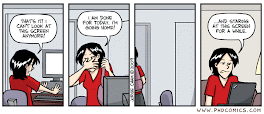
This idiom is very famous, but we do not always heed this advice.
Prevention and Early Detection
Optometry basically detects visual upsets, that is, visual problems, performance problems related to vision, development problems related to vision, and so on. Therefore, if this detection is made as soon as possible, the treatment will be more effective, will need to carry out it less time and the results will be more lasting.
How can you know if you suffer any visual upset?
FROM THE FACT THAT THERE IS NO OCULAR PATHOLOGY OR ILLNESS, if you notice that you have some troubles in order to see at distance or at near (in order to read, write, draw, watch TV, drive, practice any sport, use a computer,…), this indicates that probably, you are suffering from some “refractive error” (myopia, hypermetropia, astigmatism, anisometropia, presbyopia... concepts that I will explain in later posts). These visual problems are not pathologies or eye illness, but they may cause a big discomfort performing the tasks of daily life, although they have an insignificant value.
These problems are “quantitative visual disorders”, and using a prescription (eyeglasses, contact lenses or prisms), usually they are corrected (THOUGH NOT REMOVED).
But, in the other hand, there are other “problems of quality vision” (they are not eye illness neither), that we can not be shown to the patient with understandable quantitative data, but that, however, may almost cause more frustration and powerlessness than the previous problems. This is because many people do not know very well what happened, or where they can go with their problem.
Fortunately, there are more and more optician’s shops or offices where they perform visual exams are more complete than a simple ocular refraction in order to obtain those “refractive errors”. There they detect the reason of it: a performance problem at work or at school, a learning disability, a visual development problem, a clumsiness or balance problem, an inability in order to read a book during long time, a carsick, a dyslexia, and so on. I guess that you did not imagine the great relation that there is between vision and all things that we do daily; and many times you do not realize that, by treating a problem from vision, we can solve the visual problem and the trouble that you did not know how “solve”.
What can you do if you have a visual problem?
If you have any of these problems or any other that you think that can be related to vision (if you have some question, you can consult me about it in the comments, in order to confirm if your problem is or not a visual problem that any of my colleagues may diagnose; I am sure that many people have your problem too, and if I advise you, we can help more people; but how I wrote in the welcome post, I will never give you a solution or treatment for your problem, because I would need to assess each case in an isolated way), I recommend you to visit a qualify optometrist and you ask him a comprehensive visual exam. Afterwards, he will give you the better treatment option (refractive prescription, vision therapy, reflexes therapy or rhythmic movement therapy, syntonic phototherapy... – treatments that as well I will explain at length in later posts-), or will refer you to the professional best fitted to treat your problem.
A small problem is always easier to treat than a big problem.






No comments:
Post a Comment